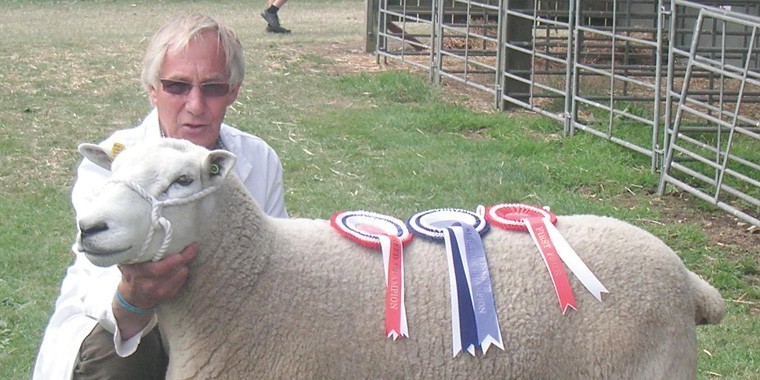I had the pleasure a couple of weeks ago of weeks ago of spending a morning at the National Sheep Association’s (NSA) South East region “next generation” event in East Sussex.
It was good to see some of the next generation of sheep farmers there. Sadly, though, there were probably more of the last generation there than next generation. It was a great pity that the event was not better supported by the target audience. The seminars where excellent, designed to encourage new entrants to develop business and communication skills and probably more importantly to be innovative: well done to the organisers.
Even though the event was organised for the next generation there was a tremendous amount in the programme that would benefit the current generation of sheep producers. In general we would all rather be out and doing and, if we are brutally honest, our business and management skills are not always what they should be.
The same could be said for our communication skills, particularly when it comes to meaningful communication with the general public, who are after all our customers. A lot of farmers – not just sheep producers – do tend to think of the public as a bit of a nuisance and opinions do tend to polarise. This is a failing that we do need to recognise and take action on as we move towards our eventual exit from the European Union. There are decisions being made about the future of agriculture and food production in the UK that will undoubtedly have an impact on all of our futures.
Sadly, all too frequently these decisions are being made by individuals who have very little real understanding of agriculture – not just individuals in government, but in the wider community, and we are often not making our views known. Within the decision making process, there are numerous other organisations interacting with decision makers who are very much better at conveying their own views and promoting their own agenda. We are, too often, sidelined in the consultation process, simply due to a lack of effective communication. It is not good enough to leave it to the NFU, NSA etc: we need to make sure that our voices are heard.
To come back to my original line of thought: one seminar that I particularly enjoyed focused vey much on what I consider to be increasingly important, which is making effective use of forages. By this I do not just mean grass: other excellent forages are available, something that many livestock producers fail to recognise along with soil health.
The latter is particularly important: soil and good soil health is the basis of all agriculture, not just arable production. As sheep keepers our ability to produce feed for our charges sustainably, ultimately depends on maintaining good soil health. We currently find ourselves in the situation where for some areas of the country the scientific community is predicting that we only have 20 or 30 years of effective (arable) production left in some soils. And don’t think that this is just scaremongering. I’m sure that there were plenty in the United States who thought that the “dustbowl” of the 1930s would never happen. But it did and many of those areas have been lost to agriculture for ever. Admittedly, by an accident of both climate and geology, most of our soils are rather less fragile than those in other parts of the world. But there is a limit to the level of abuse that they will be able to sustain.
And this is where being Innovative becomes important. There are lots of opportunities for sheep keepers and arable producers to work together. Sheep traditionally were known as the “golden hoof” because of the benefits that they could bring to soil health. It was only through the use of sheep, often referred to as “arable flocks” that our antecedents where able to sustain arable production on the chalk downlands from Sussex to Dorset, during the nineteenth and early twentieth centuries. W H Hudson’s “Shepherds Life” is an excellent read and illustrates this point beautifully.
Sheep can make a significant contribution to improving and maintaining soil health on many arable farms now. There are many arable units that would benefit from having a grass break, cover or forage crop included within their rotation to build soil organic matter. But they really do not have the knowledge, skills or desire to keep livestock and it is here that the opportunities arise for the young entrant to the sheep sector.
By working with (communication again) arable farmers, smaller start up flocks have the opportunity to expand their grazing area significantly and increase flock size by working in a symbiotic relationship with arable producers. The sheep keeper benefits from being able to operate with more sheep on a larger grazing platform and the arable producer benefits from improved soil health, better weed control and improved yields. This is an integrated production system where both sides are able to win, a situation that simply needs a bit of effective communication and cooperation.
Interestingly, the Waitrose farming partnership has just produced a very good 100 page guide, entitled “Sustainable forage protein” – a good indicator of the direction of their thinking!




